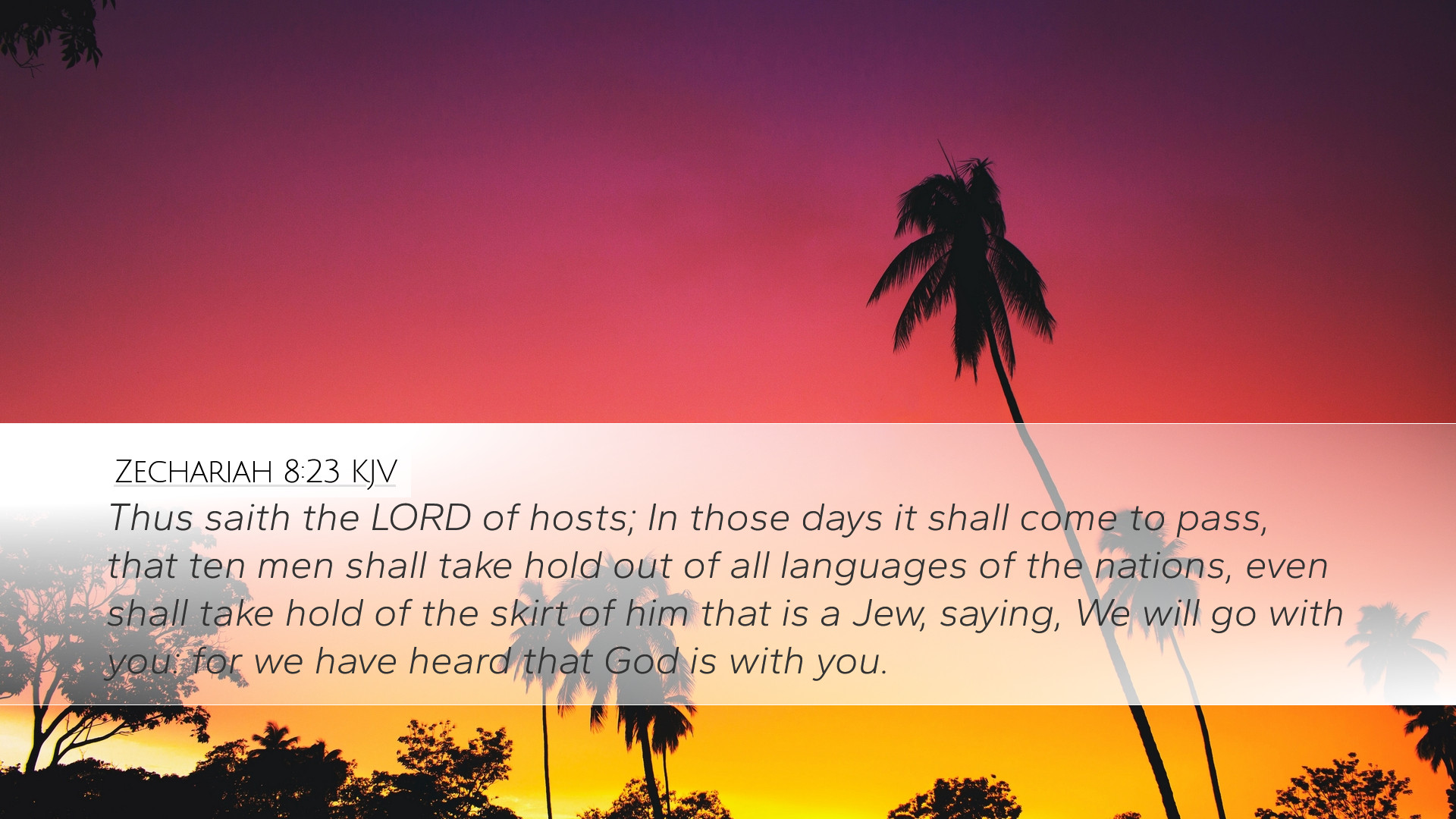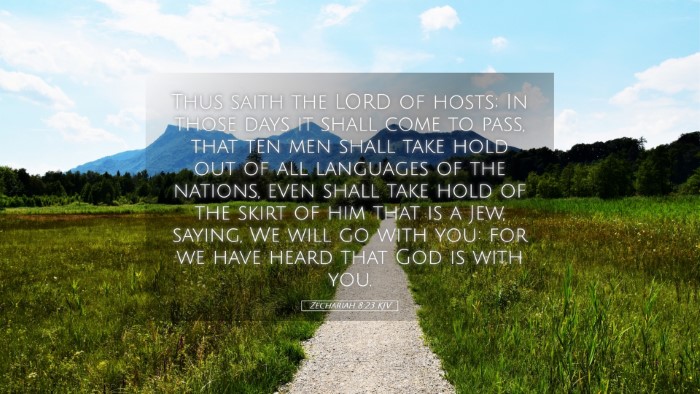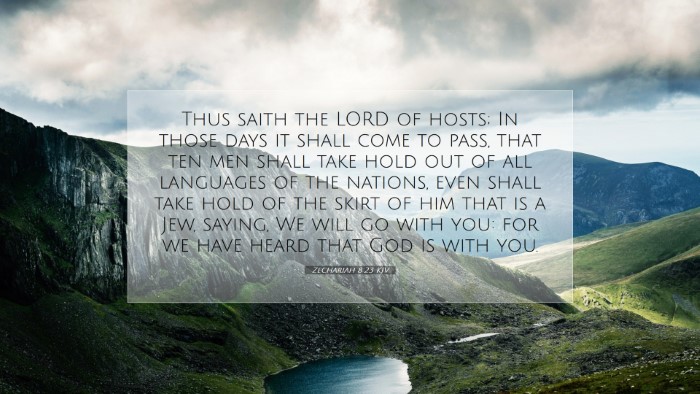Commentary on Zechariah 8:23
Verse: "Thus saith the Lord of hosts; In those days it shall come to pass, that ten men shall take hold out of all languages of the nations, even shall take hold of the skirt of him that is a Jew, saying, We will go with you: for we have heard that God is with you."
Introduction
The prophetic message of Zechariah summons attention to a time of remarkable change and divine favor toward God’s people. This verse encapsulates themes of unity, divine presence, and the global acknowledgment of God’s sovereignty and blessing. Scholars and pastors alike find in this prophecy an inspiring vision of God's intention to gather nations and peoples to Himself through His covenant relationship with Israel.
Contextual Analysis
Zechariah 8:23 appears amidst a series of encouraging messages from the Lord concerning the restoration of Zion following the Babylonian exile. It reveals God’s intention not only to restore Israel but also to invite the nations into a relationship characterized by recognition of His presence among His people.
Theological Themes
- God's Universal Sovereignty: The phrase "ten men" taking hold of the skirt of a Jew emphasizes the idea of a universal yearning to know the God of Israel. This signifies a time when all nations will acknowledge God's authority and seek communion with His people.
- Unity and Inclusion: The diverse nations represented in this verse serve as a metaphor for unity in diversity, reflecting the inclusive nature of God’s kingdom. It portrays a scene where barriers of ethnicity and language dissolve before the common pursuit of divine fellowship.
- The Presence of God: The statement "we have heard that God is with you" reflects a profound recognition that God’s presence is the differentiating factor in the lives of His people. For pastors and theologians, this underscores the importance of demonstrating God's presence through our actions and community life.
Insights from Matthew Henry
Matthew Henry notes that this passage signifies a future time in which the Jews will be esteemed and sought after, not merely for their heritage but for their relationship with God. Henry emphasizes the importance of mutual encouragement among nations and communities in their pursuit of faith. He points out that this prophecy foretells of a day when the Gentile nations will see Israel's connection with God as a source of blessing, encouraging believers to be witnesses of God's grace and power.
Insights from Albert Barnes
Albert Barnes elaborates on the symbolic nature of "taking hold of the skirt." He interprets this action as a gesture of longing for assistance and blessing, which indicates a deep desire for spiritual guidance and the recognition of the Jews as God’s chosen people. Barnes asserts that such a moment illuminates the path of evangelism, where God’s people are tasked with being lights to the nations, encouraging a heartfelt response to the divine initiative.
Insights from Adam Clarke
Adam Clarke delves into the phrase "even shall take hold of the skirt of him that is a Jew." He connects this to the practices of garments in ancient customs, suggesting that a person's identity and their connection to God are symbolically carried through their attire. Clarke's insights remind us of the tangible ways in which God manifests His blessings and presence, urging believers to wear the identity of Christ prominently and proudly, thereby attracting others to the faith.
Application for Pastors and Theologians
This verse serves as a potent reminder of the implications of divine presence in our communities and ministries. For pastors, the call is to embody and reflect God's character, creating environments where others can experience His presence in authentic ways. For theologians, it offers ample ground for exploring ideas of missiology, ecclesiology, and eschatology concerning God’s intent for the nations.
Conclusion
Zechariah 8:23 is a profound declaration of hope and inclusivity embedded in God’s covenant with His people. The imagery of nations turning to Israel for spiritual sustenance invites a deeper understanding and commitment to God’s work through His church. As we seek to live out our faith, may we embody the very presence of God that draws others to Him, fulfilling our roles as conduits of His grace to the world.


